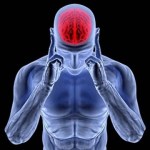“Mental toughness is to physical as four is to one“. Coach Bobby Knight
 Everyone knows in basketball there are three seasons; the regular season, postseason, and the offseason.
Everyone knows in basketball there are three seasons; the regular season, postseason, and the offseason.
Winning games and tournament titles most assuredly occur during the regular and postseason, but the true growth of an athlete happens during the offseason. Is the time spent wisely on growing stronger and developing mental toughness, or is it seen as a time to lay off and take a break?
The offseason indeed allows for injury and fatigue recovery. Still, if an athlete wants to progress in their game, they must commit to training, gaining both physical and mental strength all months of the year.
Incorporating a basketball mental game plan for improvement will elevate a good player to an elite player.
Just as a strength and conditioning coach offers assistance to reach optimal physical condition, a mental game coach utilizes methods to sharpen mental focus and build basketball confidence.
Training to increase the mind’s performance is much different than seeing a psychologist for a clinical reason such as a disorder or depression. There is no stigma to feeling “crazy” for seeking a mental game coach but instead wanting to achieve maximum performance on the court by harnessing the infinite potential of the mind.
Since physical fitness is not gained by sporadic exercising but rather a sustained approach with milestone goals set along the way, mental toughness is also a facet of a player’s game that requires consistent and deliberate attention.
A mental game coach provides guidance to maintaining and solidifying mental toughness.
The use of a mental game coach to achieve elite physical performance is widespread in many different areas.
Basketball coach Phil Jackson of the Los Angeles Lakers (and previously the Chicago Bulls) is known for his attention on players’ mental focus and basketball confidence. Jackson stresses the importance of mental imagery and visualization in every practice and game. A stronger mind empowers a high performance both in the athletic arena and in life.
Graham Betchart built a career as a mental skills coach for top NBA draft prospects like Andrew Wiggins and Karl-Anthony towns.
Nick Saban, a 3-time college National Champions Alabama coach, employs a permanent mental coach, Trevor Moawad, who works with players as a team and individually.
Most elite PGA golfers retain a personal mental coach to analyze their play, decisions, and thinking process both on and off the tour.
Using a mental game coach gives the athlete an ability to see mental barriers that they may be unable to understand or even imagine on their own.
A mental game coach allows for an unbiased analysis of performance and mental focus without the effects of personally invested emotions.
Allowing a mental game coach to assist also involves creating a plan for improvement and a guided evaluation of progress. This process will enable athletes to regain a sense of power over their thoughts and emotions both on and off the court.
The offseason provides the perfect opportunity to advance mental focus and build confidence for the next season.
The elite athletes push themselves to achieve greatness year-round.
For more information on how to improve your mental game, visit my website at mindsetsportspsychology.com
